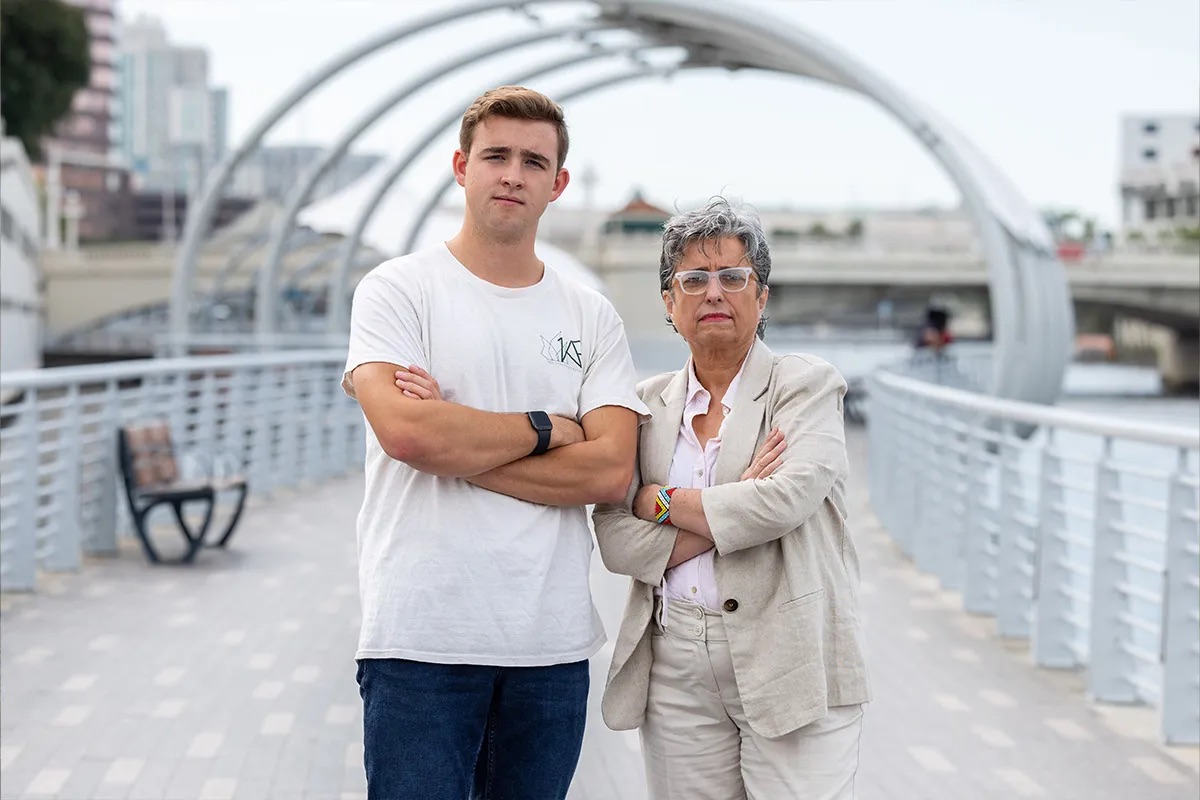Student, professor file lawsuit against USF BOT, state officials

Having lived under different dictatorships in her youth, associate professor Adriana Novoa was grateful to study in the U.S., free of state-imposed restrictions.
As academics are being censored by legislation like the “Stop WOKE Act,” or House Bill 7, Novoa remains confident she is still in the best place to study and teach.
“[Legal action was] something that people [didn’t have] when I was growing up. They would go to jail or disappear,” Novoa said. “They didn’t have this amazing resource that I have to get someone to represent me and argue that this violates the Constitution.”
Novoa, alongside senior political science and philosophy major Sam Rechek, is taking USF to court for allegedly limiting their first amendment rights with the implications of HB7, which took effect July 1.
The pair is being represented by civil liberties group Foundation for Individual Rights and Expression, a non-profit Rechek worked with in the past.
HB7 aims to protect students from being instructed “specified concepts” based on “race, color, sex or national origin,” according to the Florida Senate. It also prohibits professors from “recommending materials” that contain information that “contradicts” unspecified “certain principles.”
Those being tried are the USF Board of Trustees, which includes Student Body President Nithin Palyam, the Florida Board of Governors and other state officials.
Palyam declined to respond to the pending litigation.
Growing up in a household that juggled his mom’s career as an evolutionary psychologist and his experiences as a Catholic school student, Rechek said he developed a love for civil discourse as his two worlds frequently collided.
Once he arrived at USF in 2019, he made it his mission to spread his adoration for freedom of speech by co-founding First Amendment Forum (1AF), a student organization that promotes open debate. However, Rechek now believes his club and classrooms are being limited by the new legislation.
“Their instruction in schools seemed constitutionally questionable to me from the get-go,” he said. “I wasn’t sure if that was going to be the case when it got challenged in court, but I thought it was probably worth the challenge in court.”
For Novoa, the bill only amplifies the dissonance between the classroom and the legislators. She said after the challenges the last two years have presented for her and her colleagues, HB7’s concerns about indoctrination are misplaced.
“The most disconcerting thing was that [the only thing] for the past two years that my colleagues and I only did was trying to save a humanitarian crisis,” she said. “Teachers [were trying to help] depressed students. The last thing I expected was to come back and be accused of being an indoctrinator.”
Even though Novoa joked she has no idea what being “woke” means, she admits learning should be uncomfortable. With the horrors subjects like history challenge students with, silencing an ideological demographic concerned about race and injustice is wrong, according to Novoa.
“Protecting adult people in diversity from something that doesn’t exist and, in a sense, try to mediate what happened in the classroom. That is my problem,” she said.
Novoa said the bill ultimately harms students. Having teachers’ jobs threatened by what’s being discussed, the consequences for any transgressions of the bill could take funding that helps students.
Senior political science major and 1AF treasurer Gabriel Rostek sees the bill as an assault on important classroom discussions. Without having organic conversations, he sees his major-related classes being completely stripped of their benefits.
“I could see it impacting my classes such as being in political science, [we] talk about a lot of touchy subjects with political theory and history,” Rostek said.
Although members of the USF community are listed in the lawsuit, Rechek said it only represents disagreement with their professional capacities. Overall, he believes the university has optimized freedom of expression in policies like the Student Code of Conduct.
“We’ve got an upward trajectory of free speech at USF and despite the fact that I’m taking this action,” Rechek said. “You saw the people in [the 1AF meeting] today, they’re optimistic about discussing controversial issues. They have no qualms about expressing their views candidly, and that’s the way that students are right now.”






